It’s 54 BC and Caesar is Back
£3.00
This lesson uses the mechanism of a formal letter to explore the fact that although Caesar’s first invasion in 55 BC was a failure, his second invasion a year later in 54 BC was a success. This lesson also considers why invading Britain was extremely important for Caesar and for the Roman Empire.
As well as English (writing a formal letter) and history skills the Evidence-Based Learning skills developed in this lesson include collaborative learning, peer teaching and peer assessment. This lesson also offers pupils the opportunity to master self-regulation.
Description
Each evidence-based learning (EBL) Roman history resource in this set is a complete lesson which uses the history curriculum as a framework through which each of the eight EBL skills can be mastered. Each resource has “mastering” one EBL skill as its central focus and all eight EBL skills are covered more than once in these lessons.
All eight EBL skills are better gained working with a partner so much of the work in these lessons is collaborative. These resources will ensure that pupils can master and use EBL skills regardless of their ability.
Each Roman history lesson will develop a single EBL skill through:
1) A “Before You Start” page that introduces the EBL skill.
2) Opportunities to master this skill during the lesson.
3) An “After You Finish” page that offers pupils the chance to evaluate their learning experience (of the lesson and the EBL skill) and to identify their next step in using the EBL skill.
The skills in bold below are all the EBL skills developed in this Roman lesson. Click on each skill to learn more about that skill.
- Collaboration
- Thinking Skills
- Peer Assessment
- Peer Teaching
- Self-Assessment
- Metacognition
- Self-Regulation
- Independent Learning
1 review for It’s 54 BC and Caesar is Back
Only logged in customers who have purchased this product may leave a review.
Related products
-


Caesar Sails Without his Cavalry
£3.00 Add to basket £3.00Add to basket
£3.00Add to basketJulius Caesar invaded Britain but the Britons were waiting for him. This lesson recaps the start of this invasion in 55 BC.
As well as English and history skills the Evidence-Based Learning skills developed in this lesson includes thinking skills. This lesson also offers pupils the opportunity to master collaborative learning.
VIEW -
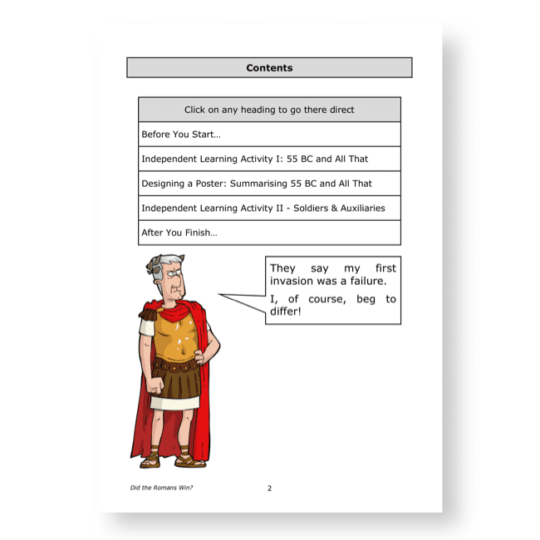
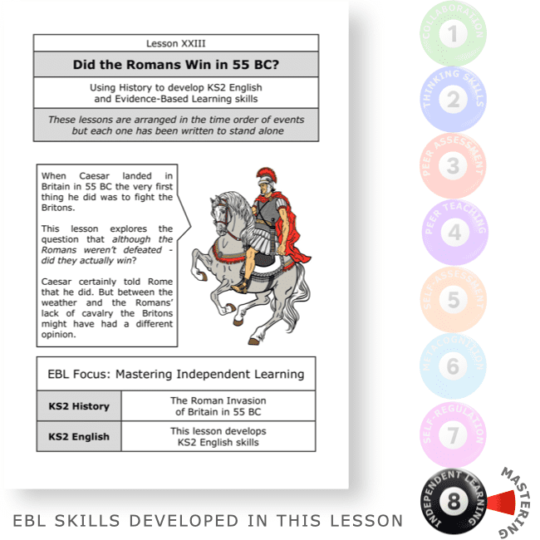
Did the Romans Win in 55 BC?
£3.00 Add to basket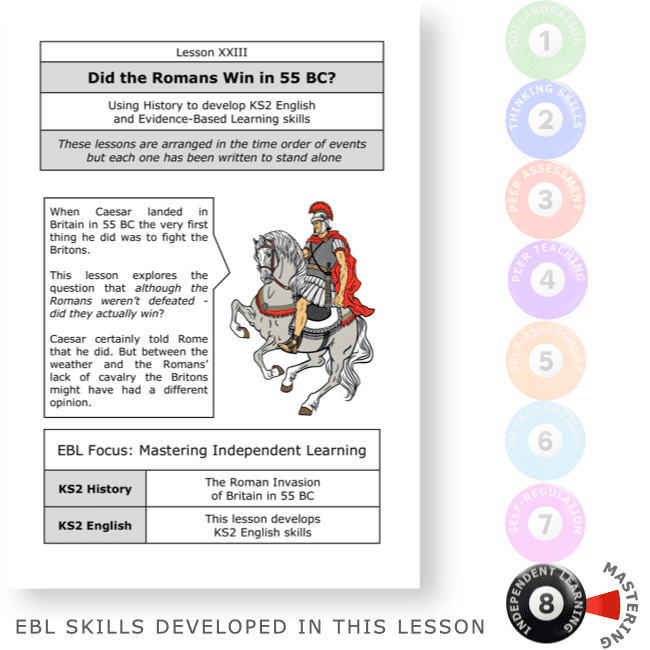 £3.00Add to basket
£3.00Add to basketWhen Caesar landed in Britain in 55 BC the very first thing he did was to fight the Britons. This lesson explores the question that although the Romans weren’t defeated – did they actually win? Caesar certainly told Rome that he did. But between the weather and the Romans’ lack of cavalry the Britons might have had a different opinion.
As well as English (designing a poster) and history skills the Evidence-Based Learning skills developed in this lesson offer pupils the opportunity to master independent learning.
VIEW -


Caesar’s Three Big Problems
£3.00 Add to basket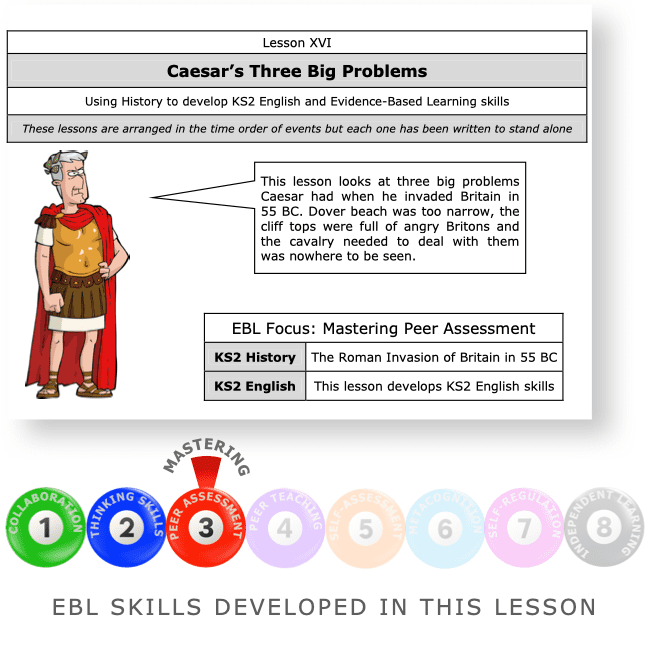 £3.00Add to basket
£3.00Add to basketThis lesson looks at three big problems Caesar had when he invaded Britain in 55 BC. Dover beach was too narrow, the cliff tops were full of angry Britons and the cavalry needed to deal with them was nowhere to be seen.
As well as English and history skills the Evidence-Based Learning skills developed in this lesson include collaborative learning and thinking skills. This lesson also offers pupils the opportunity to master peer assessment.
VIEW -

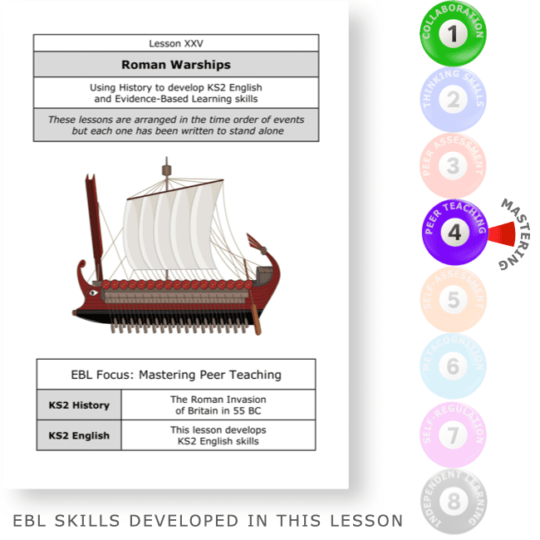
Roman Warships
£3.00 Add to basket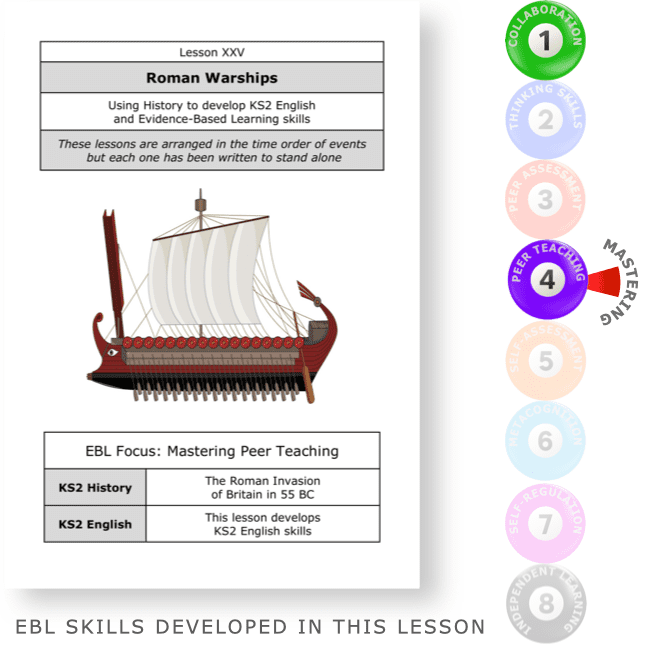 £3.00Add to basket
£3.00Add to basketThis lesson looks at the warships, especially the triremes, used by the Romans in their invasion of Britain in 55 BC. It also considers the fact that the Romans were brilliant copycats.
As well as English and history skills the Evidence-Based Learning skills developed in this lesson includes collaborative learning. This lesson also offers pupils the opportunity to master peer teaching.
VIEW

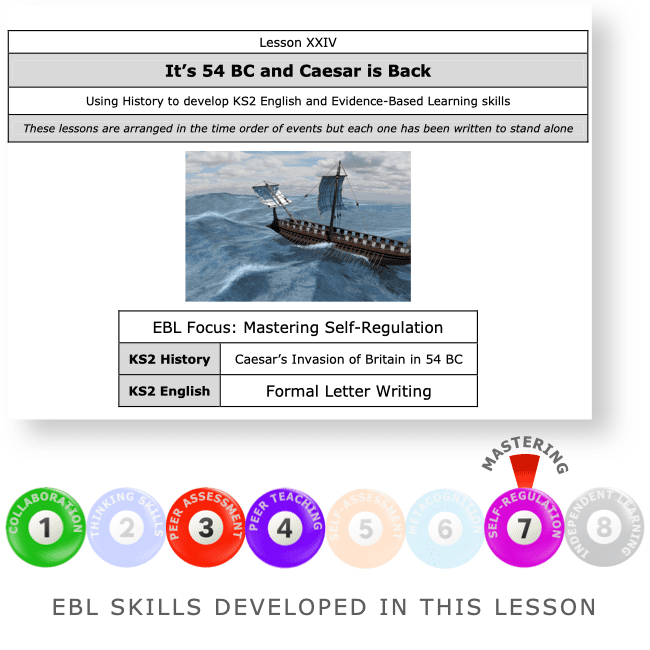
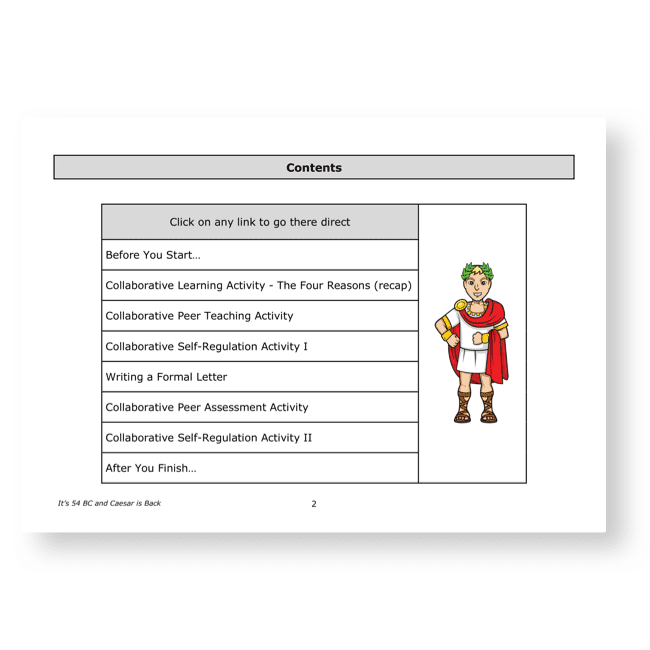

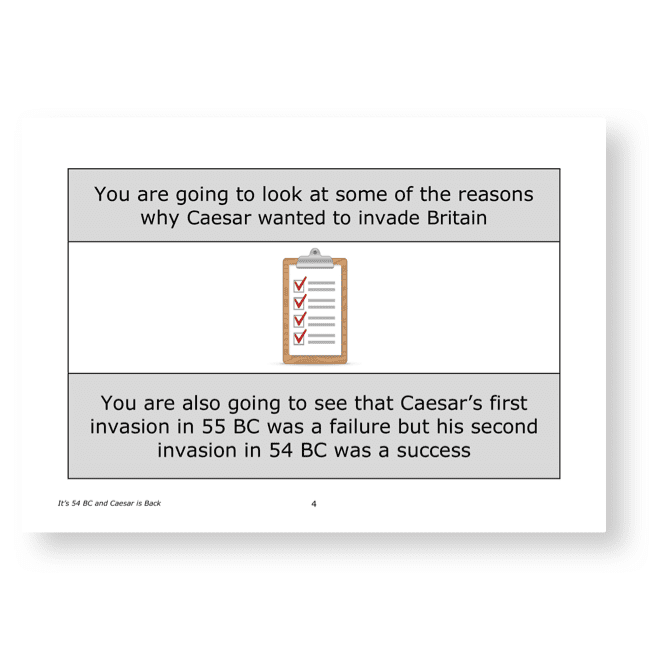

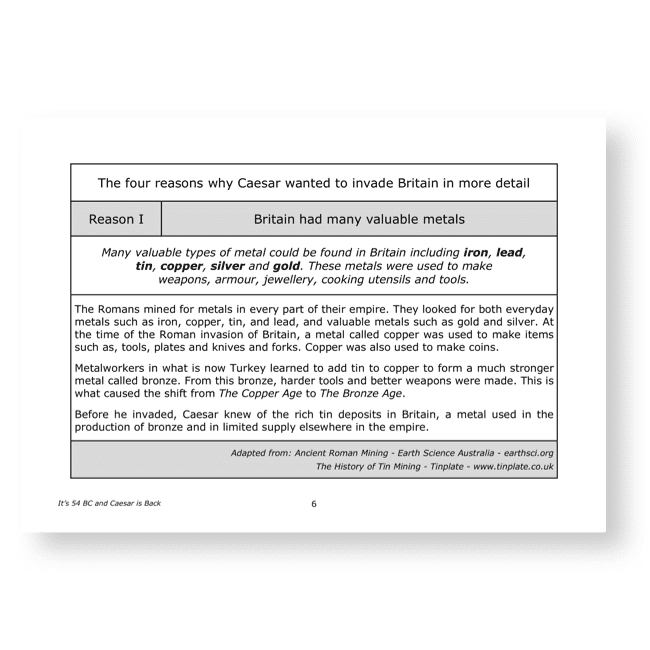
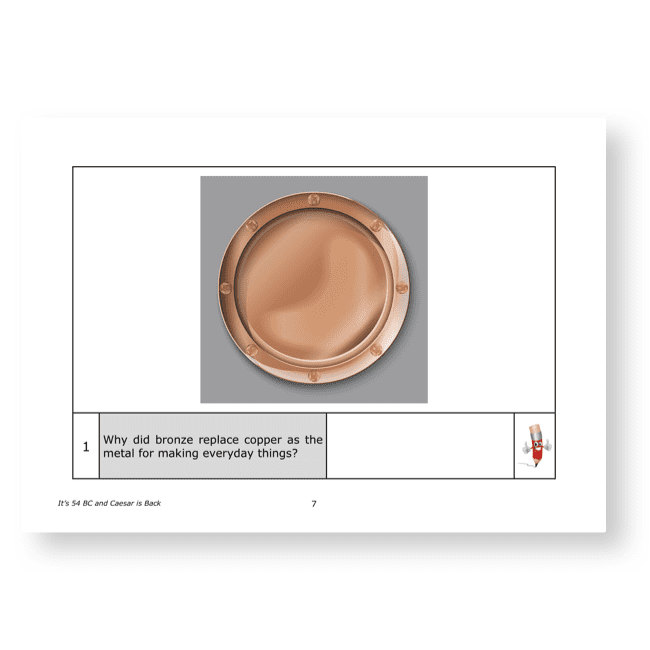
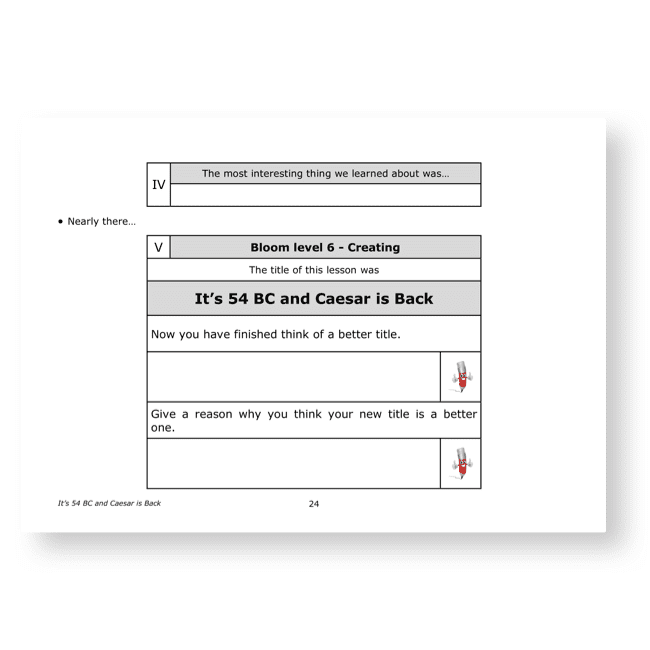
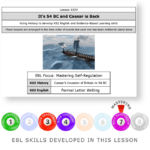
Philipem (verified owner) –
We asked a.i. to review this lesson. This is what it said:
Explore Caesar’s Invasions Through Formal Letter Writing
Are you looking for an engaging way to teach upper KS2 students about Julius Caesar’s invasions of Britain while building literacy and collaborative learning skills? Check out the lesson “It’s 54 BC and Caesar is Back” from the evidence-based teaching resource series.
This multi-faceted lesson uses the context of Caesar’s failed 55 BC invasion attempt and his successful 54 BC invasion to explore key historical details. Students take on the role of a Roman soldier writing a formal letter to Caesar, recommending he invade Britain again due to its valuable resources. They then respond as Caesar, describing the triumphant second invasion.
By working through the background information, letter-writing activities, and collaborative elements, students will:
– Learn the reasons behind Caesar’s motivation to invade Britain and the outcomes of both invasions
– Practice the structured format and language conventions of formal letter writing
– Develop peer teaching abilities by explaining lesson topics to partners
– Build peer assessment skills by evaluating each other’s letter drafts
– Master self-regulation by monitoring their own learning processes
The Evidence-Based Learning focus on self-regulated learning is seamlessly integrated, allowing students to take ownership of their work. Each lesson highlights one EBL technique to steadily build those crucial skills.
Whether you’re teaching an English writing unit, exploring Roman Britain in History, or want to combine the two in a cross-curricular manner, this engaging invasion lesson is sure to captivate your upper KS2 students.
Rating: ⭐⭐⭐⭐⭐ (5/5 stars)